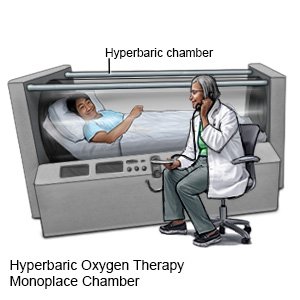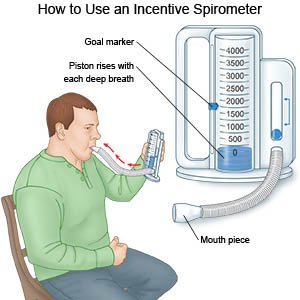Smoke Inhalation
Medically reviewed by Drugs.com. Last updated on Apr 2, 2024.
Smoke inhalation means you breathed in smoke from burning materials and gases. The smoke may contain chemicals or poisons, such as carbon monoxide and cyanide. The harmful chemicals may come from burning rubber, coal, plastic, or electrical wiring.
WHILE YOU ARE HERE:
Informed consent
is a legal document that explains the tests, treatments, or procedures that you may need. Informed consent means you understand what will be done and can make decisions about what you want. You give your permission when you sign the consent form. You can have someone sign this form for you if you are not able to sign it. You have the right to understand your medical care in words you know. Before you sign the consent form, understand the risks and benefits of what will be done. Make sure all your questions are answered.
An IV
is a small tube placed in your vein that is used to give you medicine or liquids.
A pulse oximeter
is a device that measures the amount of oxygen in your blood. A cord with a clip or sticky strip is placed on your finger, ear, or toe. The other end of the cord is hooked to a machine.
Intake and output
may be measured. Healthcare providers will keep track of the amount of liquid you are getting. They also may need to know how much you are urinating. Ask healthcare providers if they need to measure or collect your urine.
Medicines:
- Medicines may be given to prevent or treat pain, swelling, or a fever.
- Antidotes may stop or control the effects of the smoke you inhaled. The antidotes depend on the type of smoke you inhaled.
- Bronchodilators help open the air passages in your lungs so you can breathe more easily.
- Steroids help to open your air passages so you can breathe easier.
- Antibiotics treat or prevent an infection caused by bacteria.
Tests:
- Blood tests are used to check the amounts of oxygen and carbon dioxide. The results can tell healthcare providers how well your lungs are working.
- A neurologic exam can show healthcare providers how well your brain is working. A provider will check how your pupils react to light. He or she may check your memory and how easily you wake up. Your hand grasp and balance may also be tested.
- A bronchoscopy is a procedure to look inside your airway. A bronchoscope (thin tube with a light) is inserted into your mouth and moved down your throat to your airway. Tissue and fluid may be collected to be tested.
- X-rays may show lung damage or signs of infection, such as pneumonia.
- Pulmonary function tests help healthcare providers learn how well your body uses oxygen. You breathe into a mouthpiece connected to a machine. The machine measures how much air you breathe in and out over a certain amount of time.
- A V/Q scan is used to check your lung function. Radioactive dye will be put into your vein. Your blood will carry the dye to the blood vessels in your lungs. Pictures will be taken to see how blood flows in your lungs. Then you will breathe in a gas. Pictures will be taken to see how well your lungs take in oxygen.
Treatment:
- Hyperbaric oxygen therapy is used to get more oxygen into your body. The oxygen is given under pressure to help it get into your tissues and blood.

- You may need extra oxygen if your blood oxygen level is lower than it should be. You may get oxygen through a mask placed over your nose and mouth or through small tubes placed in your nostrils. Ask your healthcare provider before you take off the mask or oxygen tubing.
- A ventilator is a machine that gives you oxygen and breathes for you when you cannot breathe well on your own. An endotracheal (ET) tube is put into your mouth or nose and attached to the ventilator. You may need a trach if an ET tube cannot be placed. A trach is a tube put through an incision and into your windpipe.
- Keep the head of your bed raised to help you breathe easier. You can also raise your head and shoulders up on pillows or rest in a reclining chair. If you feel short of breath, let healthcare providers know right away.
- Do deep breathing to help prevent a lung infection. Slowly take a deep breath and hold the breath as long as you can. Then let out your breath. Take 10 deep breaths in a row every hour while awake. You may be asked to use an incentive spirometer to help you with this. Put the plastic piece into your mouth and slowly take a breath as deep and as long as you can. Hold your breath as long as you can. Then, let out your breath.

RISKS:
Smoke inhalation is a serious, life-threatening injury. Treatment is needed as soon as possible. If not treated early, the smoke may damage your lungs and cause breathing problems. Your lungs and airway may become irritated, swollen, and blocked. The damaged airway and lungs prevent oxygen from getting into your blood. You may develop respiratory failure. Respiratory failure means you cannot breathe well enough to get oxygen to the cells of your body. Your lungs may become infected, swollen, and filled with fluid. Fluid in the lungs causes severe shortness of breath. Your heart and brain may be damaged. Even with treatment, you may have permanent lung damage.
CARE AGREEMENT:
You have the right to help plan your care. Learn about your health condition and how it may be treated. Discuss treatment options with your healthcare providers to decide what care you want to receive. You always have the right to refuse treatment.© Copyright Merative 2024 Information is for End User's use only and may not be sold, redistributed or otherwise used for commercial purposes.
The above information is an educational aid only. It is not intended as medical advice for individual conditions or treatments. Talk to your doctor, nurse or pharmacist before following any medical regimen to see if it is safe and effective for you.
Learn more about Smoke Inhalation
Treatment options
Care guides
Further information
Always consult your healthcare provider to ensure the information displayed on this page applies to your personal circumstances.
